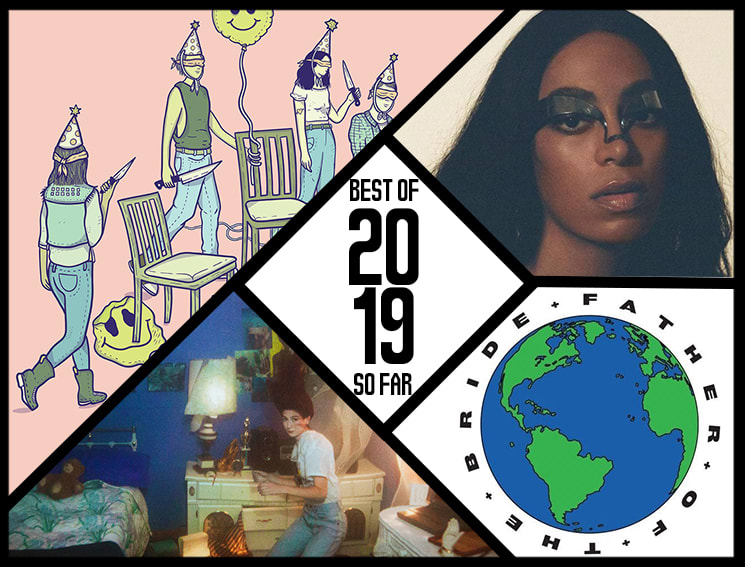As ever, our best albums of 2019 so far list reflects the diverse tastes of the Exclaim! writers list, but this was a little different. Where lists of yesteryear tended to be topped by albums that absolutely sprinted away with the votes (Cardi B and U.S. Girls were miles ahead of the rest of the 2018 list; Kendrick Lamar, Sampha and Feist dominated the voting in 2017), this year's votes were more evenly dispersed — it wasn't until the last few votes came in that even the top five became clear.
Maybe that's further evidence of the monoculture's breakup, or maybe the 2019 album that unites everyone across genres hasn't come out yet. In the meantime, there's plenty of debate to be had about these 29 long-playing feats of style and musicianship. Dig into Exclaim!'s Top 29 Albums of 2019 So Far below, and get arguing.
29. Deerhunter
Why Hasn't Everything Already Disappeared?
(4AD)
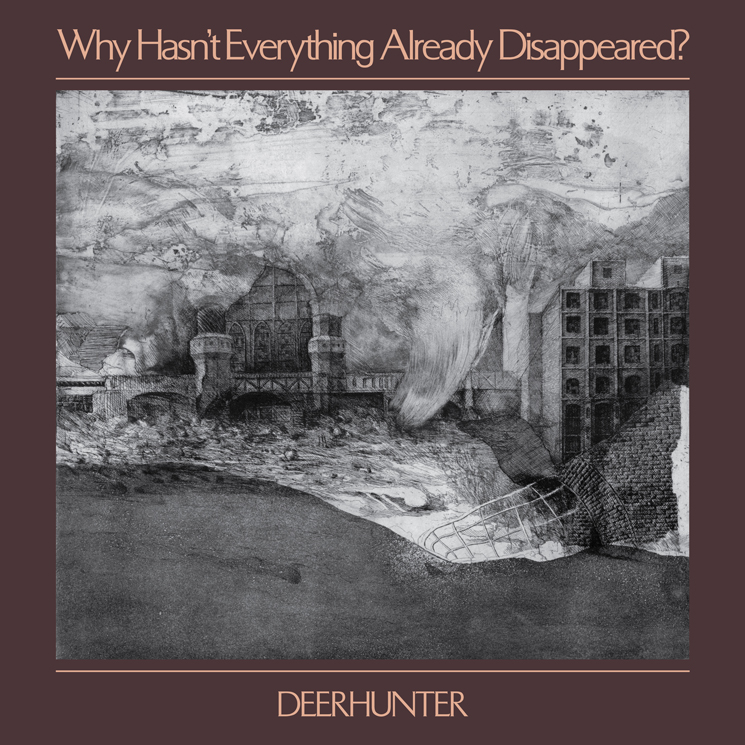
From their amorphous dream-psych beginnings to the more whimsical, sharply contemplative vision of their eighth album, Why Hasn't Everything Already Disappeared?, Deerhunter have existed in a hazy divide between alluring guitar rock and spacious, hypnotic experimentations. Here, the Atlanta band continue to follow their sonic impulses by blending some of their strongest pop hooks yet with the full spectrum of their bizarre, colourful pastiche.
The waltzing, harpsichord-led "Death in Midsummer" darts between exquisite and obscene, while the shimmering "What Happens to People?" is densely packed with bandleader Bradford Cox's pastoral musings and a deceptively cheery piano riff, lurching between glistening guitars and an ornate drum beat. The contrast between the fragrant reverie of the airy vocal exchange between guitarist Lockett Pundt and co-producer Cate Le Bon on "Tarnung," and the bubbly funk on "Plains" that follows, prove that Deerhunter aren't afraid of magnifying the peculiarities of their ever-expanding sound.
Chris Gee
28. Aldous Harding
Designer
(4AD)

Designer was everything listeners anticipated from Aldous Harding's third full-length, and a lot that wasn't — and that's what makes it so special. Harding has a way of making the uncanny tangible, and Designer delivers once more, providing the feeling of stumbling onto a lone stranger dancing naked in the middle of the woods, and knowing exactly how to join in without missing a beat. For those awaiting this latest release with bated breath, it was this familiarity, presented via oddity, that came to satisfy us once again, filling something we didn't know was empty with a multitude of rich, unusual classics.
Ariel Matheson
27. 2 Chainz
Rap or Go to the League
(Def Jam)
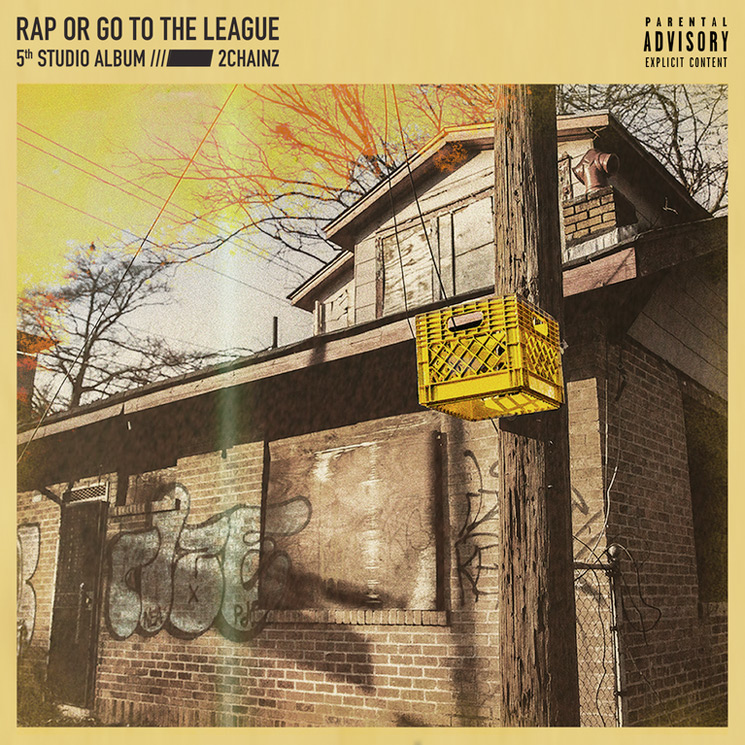
Five albums into a hard-earned but now glittering career, it was beginning to feel ambitious to ask for anything beyond pretty girls and trap music from 2 Chainz, which is why Rap or Go to the League — a reference to both a personal career crossroads and the limited escape routes of so many young black men from fractured homes — is so refreshing in its honesty and its excellent, soul-infused beats.
"I did some things I ain't proud of, like sold my mom drugs / The devil put somethin' toxic in me / Demons tryin' to have an auction in me," Chainz confesses on highlight "Threat 2 Society." So what if LeBron James couldn't lead his team to the NBA Finals this year? He was busy executive-producing one of the year's best no-nonsense hip-hop LPs.
Luke Fox
26. Jayda G
Significant Changes
(Ninja Tune)
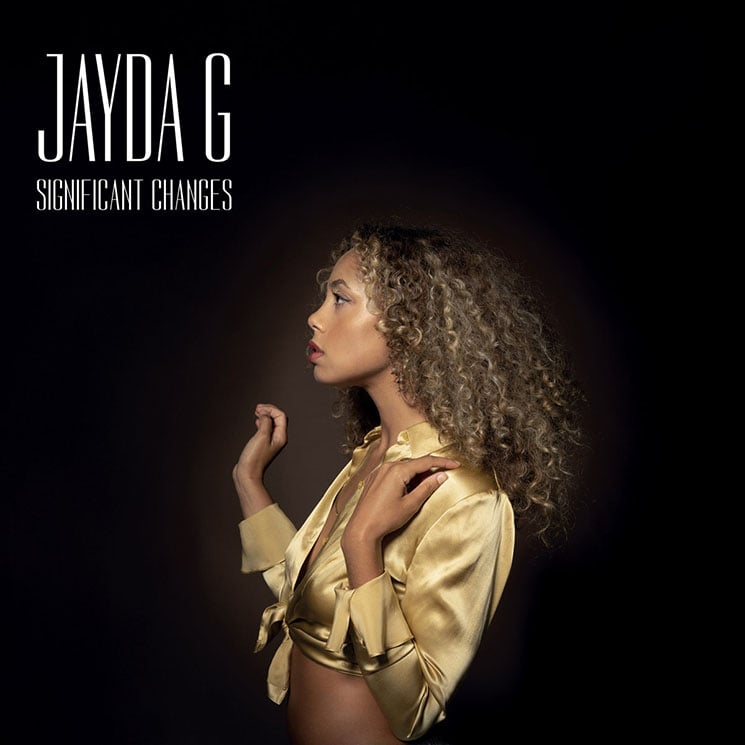
There aren't many out there who can mix old-school disco cuts with environmentalism, but Vancouverite Jayda G appears to be one of them. After completing her master's degree in Resource and Environmental Management, she named her debut album Significant Changes, after the most commonly used phrase in her thesis.
She could have left the nod to academia at that, but the record is rife with references to her studies. "Missy Knows What's Up" quotes dialogue from biologist Misty MacDuffee, while "Orca's Reprise" samples whale calls atop a tender arrangement of strings. All the while, fresh approaches to disco are bookended by offbeat club tracks and downtempo excursions. It's a surprising album from a producer whose consistency now comes as no surprise whatsoever.
Daryl Keating
25. Nilüfer Yanya
Miss Universe
(ATO Records)
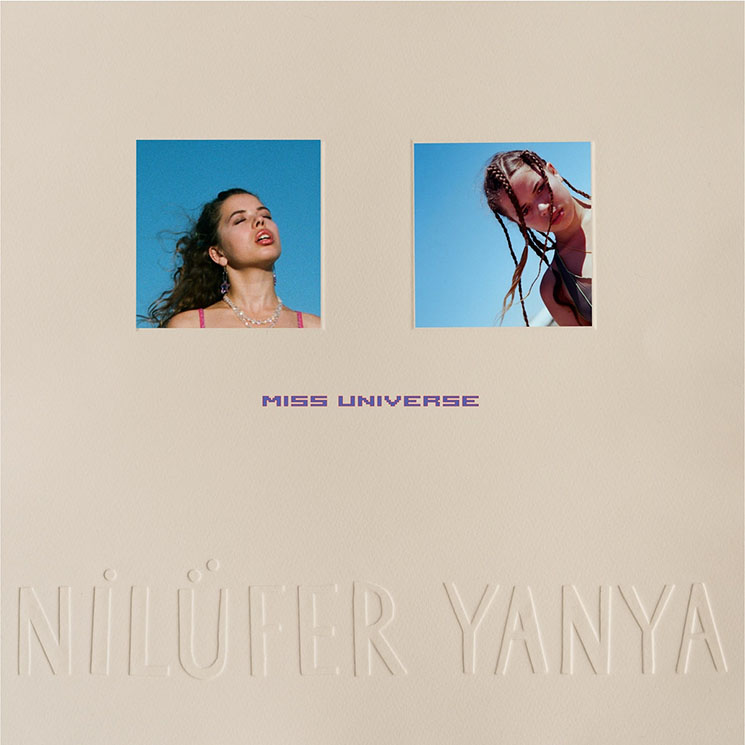
Fuelled by extraordinary hype and a handful of expertly crafted EPs, Nilüfer Yanya's steady trajectory seemingly needed just one more thing: a definitive full-length album.
Yanya's debut, Miss Universe, is equal parts brilliant and spontaneous, veering from soul-tinged R&B to Doolittle-era Pixies-isms like it's inherent. Lyrically, Yanya constructs a similar balancing act, obscuring the lines between desperation and violence: "Yeah, all I really want is / Somebody to stop me / Somebody to hold me back / It gets worse if it's not you / I'll be lyin' in a pool of someone else's blood," she sings on "Tears."
Tempered by Yanya's remarkable voice, the laser-sharp clarity that permeates Miss Universe is as incisive as it is inviting. Though she was already operating at a level far beyond her peers, Miss Universe provides a dose of validation.
Calvin Cashen
24. Whitechapel
The Valley
(Metal Blade)
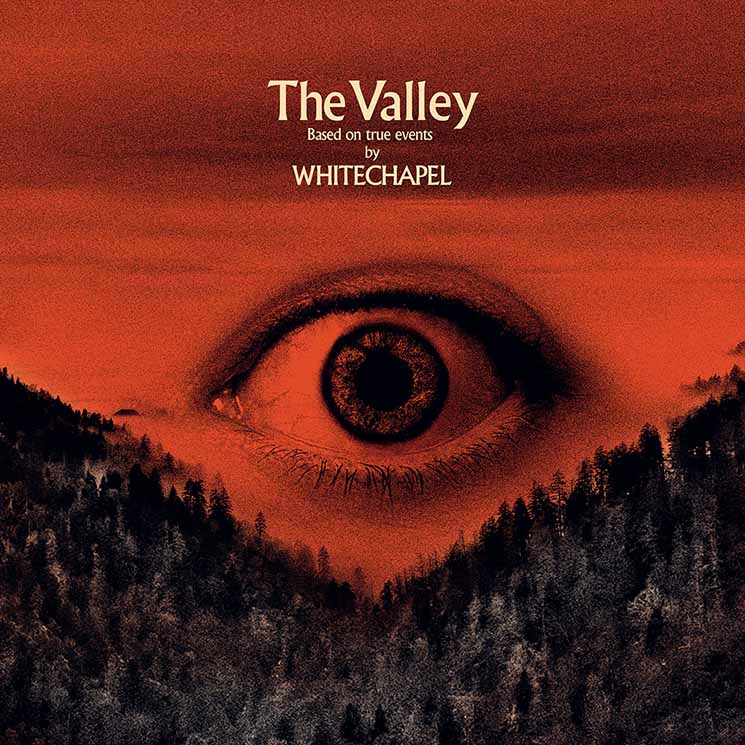
There's been a bit of a deathcore revival lately, but rather than doubling down on blast beats and breakdowns for that retro appeal, Knoxville, Tennessee's Whitechapel transcended it on this year's The Valley.
There are still those key building blocks, but it's the mortar that holds them together that really shapes the album. Vocalist Phil Bozeman croons like Corey Taylor or Maynard James Keenan, while his bandmates complement his always-impressive vocals with mood-appropriate musical musings. A tender tune like "Hickory Creek" makes the raw rage of "Forgiveness Is Weakness" terrifying. The palpable emotions, which confront childhood trauma and abuse, only make it more so.
"When a Demon Defiles a Witch" splits the difference between fury and feeling, resulting in the best chorus — in the traditional sense — deathcore has ever produced.
Funnily enough, despite renewed interest in the once-maligned subgenre, the best thing to come from deathcore in 2019 is the one album that risked stepping away from it.
Bradley Zorgdrager
23. The Chemical Brothers
No Geography
(Astralwerks)
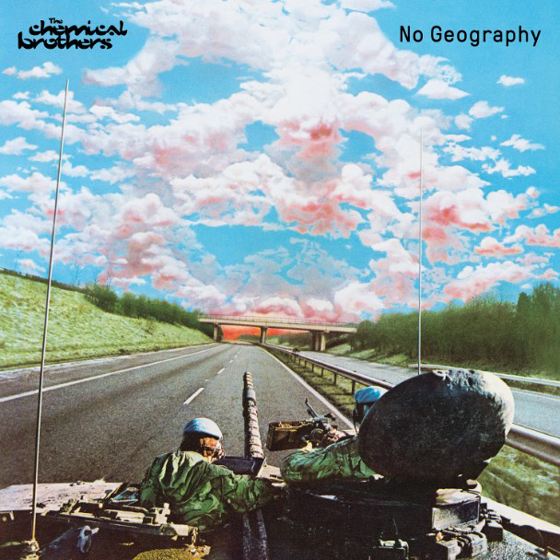
Part of the promised wave of European acts that were going to take over North America in the mid-'90s, the Chemical Brothers have always embodied the blissed-out harmony of the UK's summer of love and the acid-drenched breakbeats that fuelled the early DIY rave culture in the UK. This is not a Hollywood style do-over where the band just recreate nostalgic moments and end up as a hollow version of themselves.
That doesn't mean Ed Simons and long-time partner Tom Rowlands don't use some of the foundations of early Chicago house, dialled up Detroit techno, wide-eyed acid and neon-splashed breakbeats on their ninth studio album, and first release in four years. In a genre that can change faster than the digital store algorithms can keep up, the Chemical Brothers' use No Geography to remind people how their strobe-blasting, body-rocking, sensory-overloaded live shows in the new millennium paved the way for what you see at every big stage electronic festival in 2019.
Anthony Augustine
22. Bring Me the Horizon
amo
(Sony)
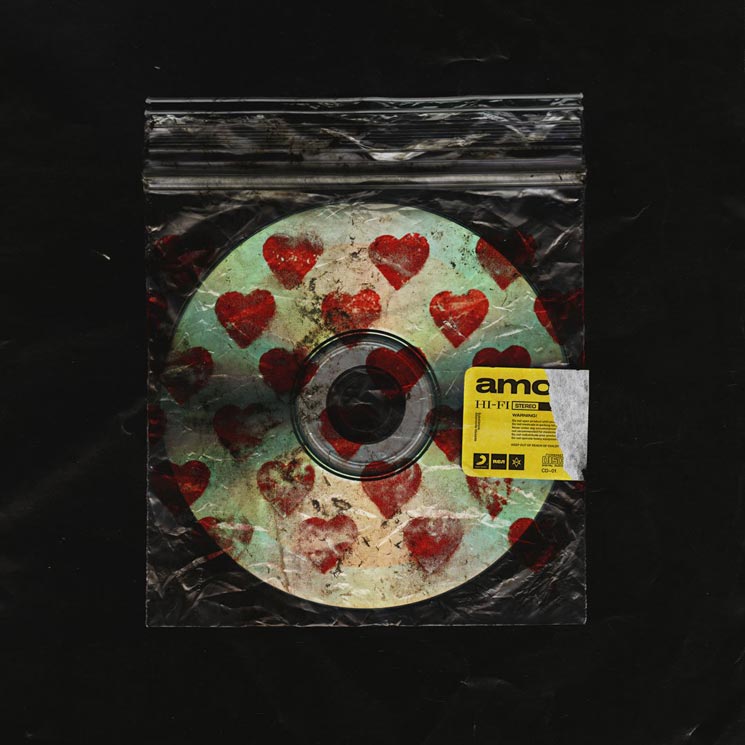
BMTH continued their unstoppable rise with amo, the most mainstream and experimental album they've produced yet. Gone are the days of the deathcore scene kids; in their place, we have some of the best pop metal tracks ever put to record, including "Mantra," "Medicine," "Mother Tongue" and "Sugar Honey Ice & Tea." Embracing a sugary, electronic-infused sound 15 years into your career would be cyanide for most metalcore acts, but BMTH have never really cared what people think of them. Or, as the meta-lyrics to the song "Heavy Metal" state: "This shit ain't heavy metal, and that's alright."
Max Morin
21. Charly Bliss
Young Enough
(Barsuk)
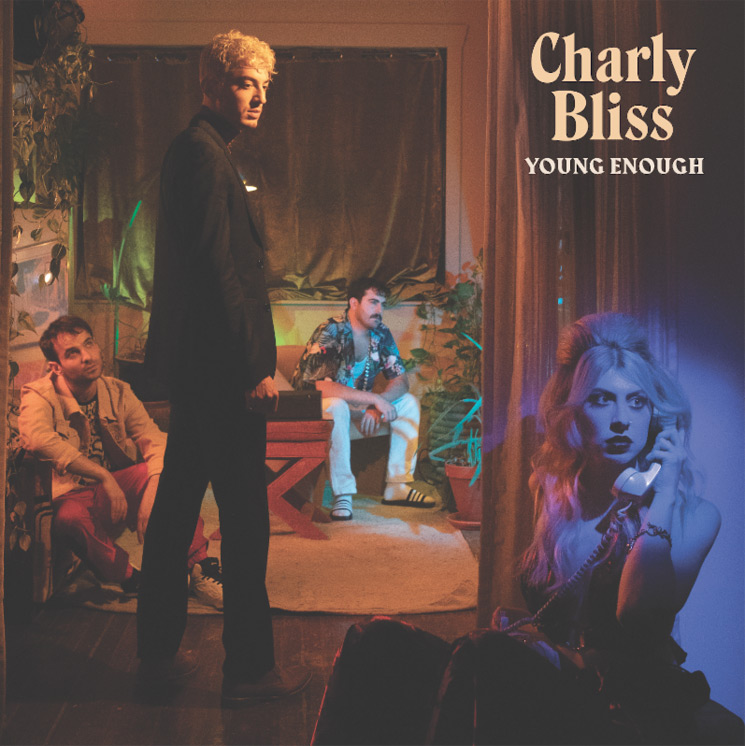
Like any great power pop group, Charly Bliss have mastered the art of propulsive, infectious melodies. And like any great pop record, Young Enough is energetic and fun, with no excess fat, perfectly optimized to deliver all the highs of contemporary indie pop.
But this record has more tricks up its sleeve. The title track and "Hurt Me" feature evocative vocal performances from Eva Hendricks, and heart-wrenching lyricism, but most notable is the bright and danceable "Chatroom." Written after Hendricks was sexually assaulted by someone she dated, she's talked about how the song is a celebration of shaking off past trauma and feeling strong again.
It's moments like these that speak to the sheer growth the band have undergone, and how they can turn moments of pop exuberance into ones that carry significant heft — ones you'll want to return to again and again.
Matt Yuyitung
20. James Blake
Assume Form
(Polydor)
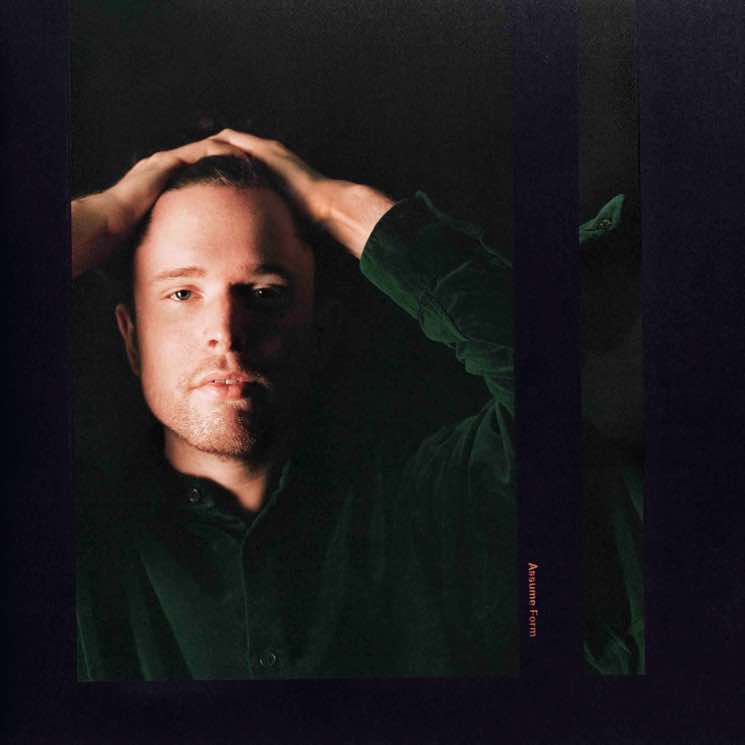
There's a quiet assuredness underlying much of James Blake's work, one that has formed the narrative core to his first three albums. But start paying closer attention to Blake's outlying outputs, such as his production credits and 1-800 Dinosaur releases, and it becomes quickly apparent that those who've attempted to pigeonhole his style have been woefully misguided.
Assume Form is a perfect storm of all of Blake's influences and idiosyncrasies. While much has been said about the positive tone the album strikes, especially in contrast with 2016's The Colour in Anything, Assume Form's greatest strength is its ability to weave together all of the disparate Blakes within a very distinct — and yes, often uplifting — palette, all while allowing his impressive roster of guest vocalists the chance to shine.
Scott Simpson
19. Vampire Weekend
Father of the Bride
(Columbia)
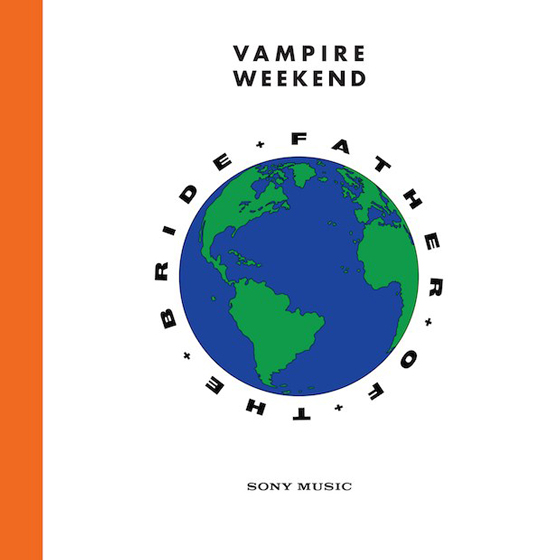
In Ezra Koenig's world, lowbrow and highbrow don't exist. He's dabbled in everything from pop production (on Beyoncé's Lemonade) to anime (his Netflix series Neo Yokio) — and he's also got a weird fixation with the font Jokerman. He approaches everything with a scholar's attention to detail, channelling his passions with a mixture of irony and sincere appreciation.
This all comes through on Father of the Bride, a clipart-bedazzled 18-song opus that opens a new chapter for the project. With core member Rostam Batmanglij out of the band, Koenig explores wacky jazz scatting ("Sunflower"), white-knuckle flamenco ("Sympathy") and cheeseball country (on three duets with Danielle Haim). Throw in the heart-wrenching pop melodies of "Harmony Hall" and "Stranger," and Father of the Bride works like a mood board for Koenig's wildest tastes.
Alex Hudson
18. Little Simz
GREY Area
(Age 101)
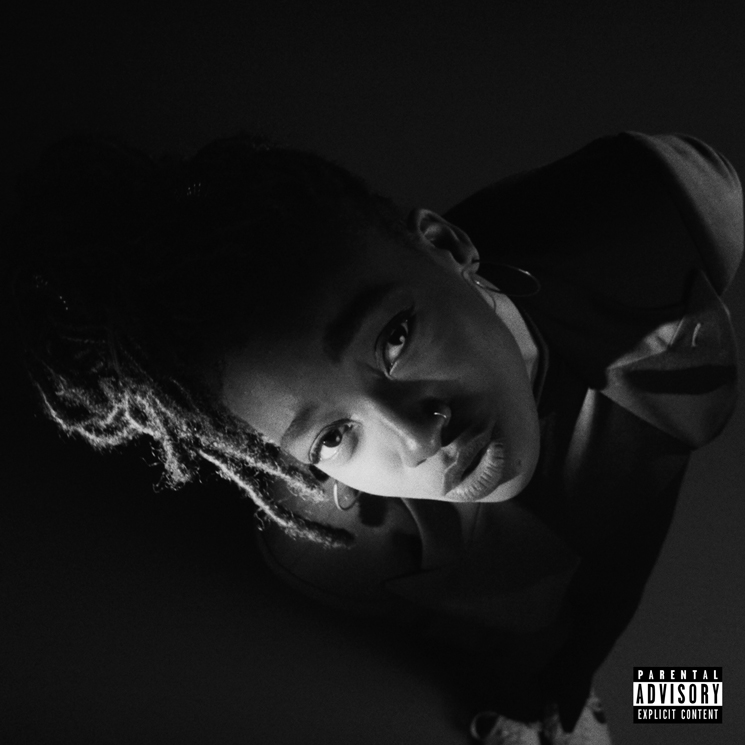
North Londoner Little Simz elevated her music this March upon the release of GREY Area, the MC's third full-length album. Working closely with producer Inflo, Simz delivered a starkly honest portrait of navigating her early twenties, rapping vulnerably about her relationships, mental health and career.
The record's deep sense of groove can be heard in the R&B-infused "Selfish," featuring fellow Londoner Cleo Sol; elsewhere, Simz juxtaposes her bars with the voices of Erik Bodin and Yukimi Nagano (Little Dragon), as well as Michael Kiwanuka. The soundscapes on GREY Area are understated when needed, yet they heighten the drama and prowess of Simz' lines, as heard on "Venom," a bass- and strings-inflected assertion of feminine rage.
In detaching herself from the fantastical themes of 2016's Stillness in Wonderland, Little Simz's songs connect in a more direct manner here, deftly conveying her fears and continuing to establish her triumphs as the singular artist she is.
Anna Alger
17. Fontaines D.C.
Dogrel
(Partisan Records)
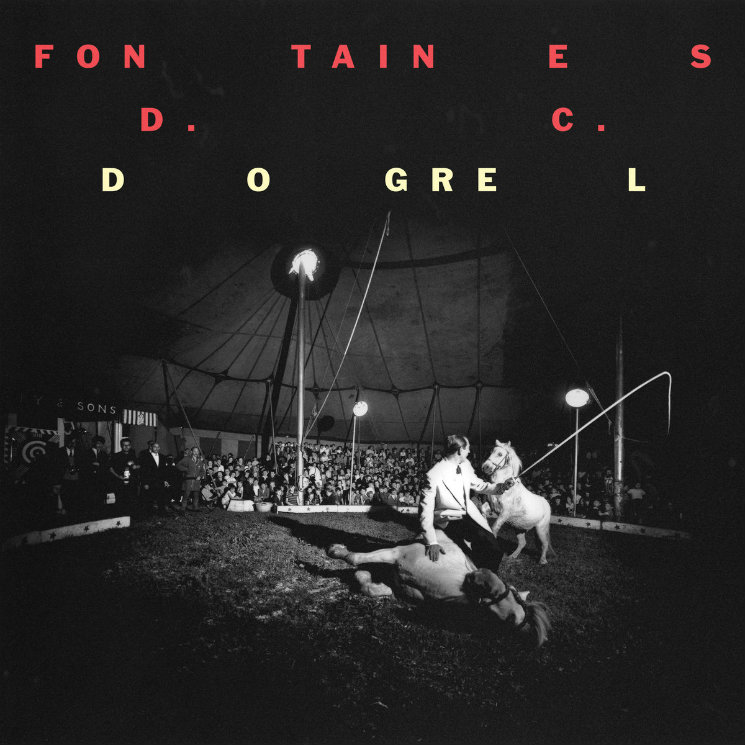
Joining their brethren in IDLES and Shame, Fontaines D.C. have solidified their place at the forefront of the exceptional recent wave of post-punk exports. This April saw the Irish lads release their debut full-length; a poetic testament to the disenchantment that pervades the demise of youth, Dogrel deftly integrates both early garage/surf rock influences.
Over the record's 11 tracks, which veer between boisterous and frantic to melancholic and fragile, singer Grian Chatten's poignant storytelling never falters: "Dublin in the rain is mine / A pregnant city with a Catholic mind," he barks assertively on "Big," Dogrel's fiercely catchy opener. Elsewhere, on the ballad "Roy's Tune," the frontman gently croons: "Hey love, are you hanging on?" Naturally saturating each lyric in his thick Irish accent, the powerful juxtaposition of Chatten's vocal tones feed Dogrel's narrative.
With authentic talent and a supportive community of similarly bold bands, Fontaines D.C. are sure to be dubbed one of 2019's most important new acts.
Ava Muir
16. Jenny Lewis
On the Line
(Warner)

On the Line, Jenny Lewis's fourth solo album, finds the ex-Rilo Kiley frontwoman squaring up with the past. Its 11 songs unpack complicated moments and tangled emotions with vibrant shades of pop-rock and just enough California twang.
Across them, Lewis has never seemed so in command of her craft: from the sharpened guitar-led urgency of "Red Bull & Hennessey" to the potent, anti-depressant drift of "Do Si Do," she lands poignant realizations by digging into little details of the memories she's revisiting. And backed by a team of legendary studio musicians, the music keeps pace with her lyrical feats, letting On the Line reveal itself as an essential part of Lewis' catalogue.
Paul Blinov
15. Jamila Woods
LEGACY! LEGACY!
(Jagjaguwar)
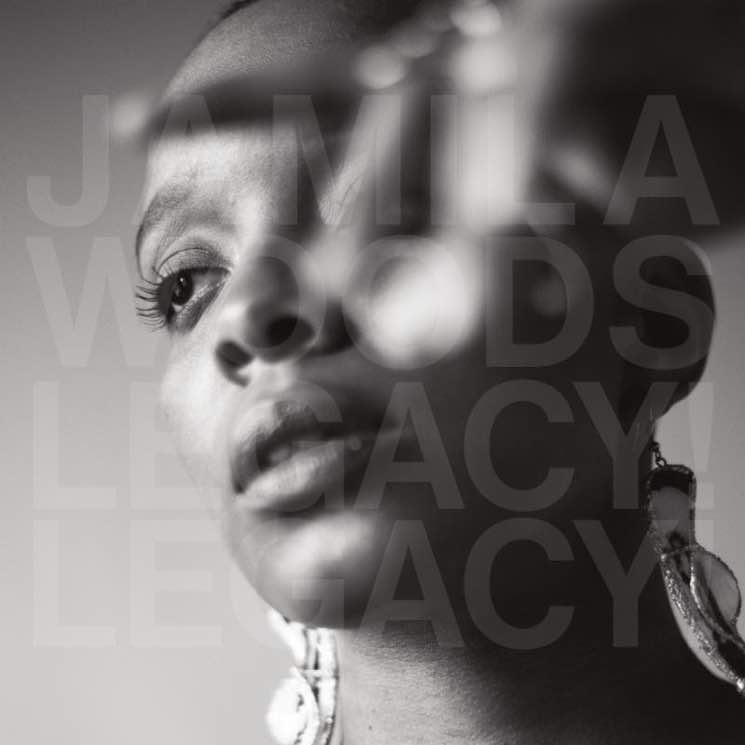
Jamila Woods' music has a message on her new LP, LEGACY! LEGACY!, on which she seamlessly fuses irresistible grooves with vivid lyrics about the African American greats who have preceded her and paved a more progressive way.
Opener "Betty" for instance, is the kind of track that would have made its muse, pioneering singer Betty Davis, grin, with thrillingly unpredictable percussive shuffle and Woods' assured singing. Woods achieves equal feats on "Zora" while singing about dining on African American staples like collard greens with a silver spoon, vividly conveying longing with drawn out syllables. "Giovanni," meanwhile, boasts dramatic dips in tempo juxtaposed with stratospheric synth riffs and equally heavenly singing from Woods.
Both as a tribute to her forbearers that sparked so much promise, and as an early testament to her own towering potential, Woods makes LEGACY! LEGACY! live up to its name.
Kyle Mullin
14. Big Thief
U.F.O.F.
(4AD)
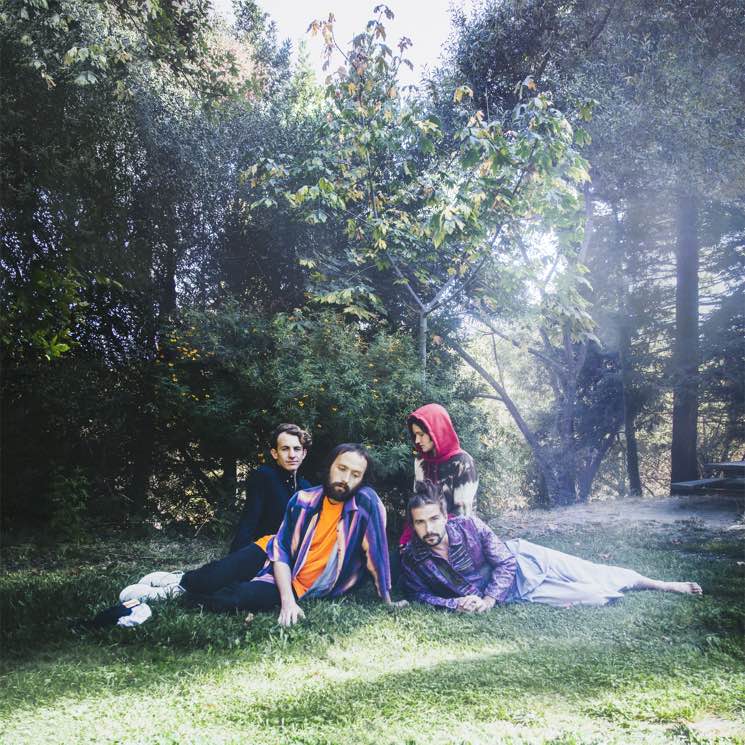
All folk acts look to the past in some ways, but there's something about Brooklyn-based folk-rock combo Big Thief's latest album, U.F.O.F., that feels of the present — and totally eternal.
Adrianne Lenker's finger-picked guitar playing crackles with light, its interlocking broken chords perfectly complementing her repeated phrases about people, creatures and the unseen laws of the universe; the rhythm section of bassist Max Oleartchik and drummer James Krivchenia is subdued yet strong, lending a gentle push and pull that guides these songs with grace (and feels so innate it belies their Berklee training); and Buck Meek's live-wire guitar playing punctuates the album's more profound moments, awakening the listener during the hypnotic dirge of opener "Contact," and finding space alongside the interloping sonic artefacts that dot the rest of the album and seem to transcend both time and space.
A deep, dark and melancholy album emerging in a time of general uncertainty, Big Thief's U.F.O.F. feels like a cool embrace — a welcome presence (and present) from one of the best bands of our moment.
Matthew Ritchie
13. Snotty Nose Rez Kids
Trapline
(Fontana)
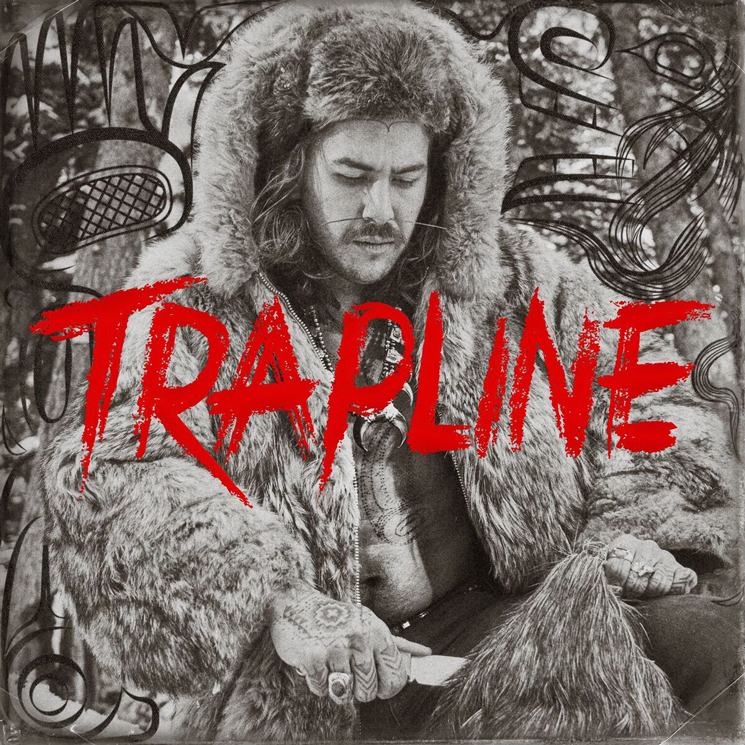
Few acts have more to say than Kitimat, BC's Snotty Nose Rez Kids. The duo of Darren "Young D" Metz and Quinton "Yung Trybez" Nyce broke out with their Polaris Music Prize-shortlisted sophomore album, The Average Savage, and Trapline follows with even more crucial challenges to power.
In a key track, "Son of a Matriarch" calls out the patriarchy that has dominated Western political structures and cultural institutions since their foundation. Even the title itself, Trapline, is a reference to social responsibility, to our reliance on the land and how it, the sea and the air must be honoured if future generations are to flourish. The trap-tinged beats are as hard-hitting and slickly-produced as anyone around, but their commitment to elevating marginalized people carries more weight than mansion-dwellers could ever realize. The skits here solidify their messages, rather than distract from them, making Trapline a complete and powerful artistic statement.
Alan Ranta
12. Lizzo
Cuz I Love You
(Warner Music Canada/Atlantic)
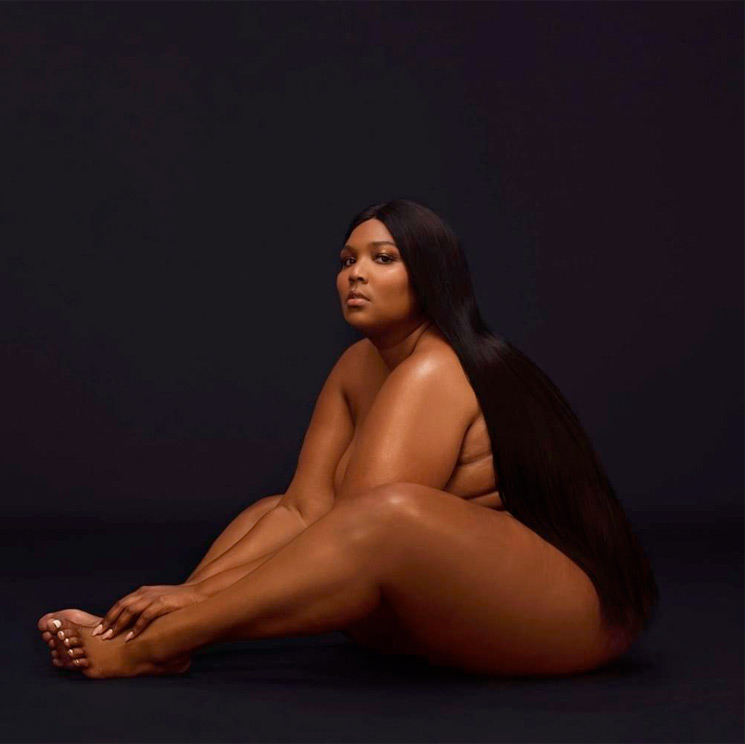
It takes your breath away, Lizzo's voice, on the first and title track of her major label debut, Cuz I Love You. She wails that song's opening line with no backing, and it's both a powerful and apt way to start the album, her voice bare, just her. It's how she appears on the record's cover and also the spirit in which she delivers its 11 tracks.
From sonic references like jazz, soul, funk, and trap to material that tackles sexuality ("Lingerie"), body positivity ("Tempo," on which she pairs perfectly with Missy Elliott), race ("Better in Color") and relationships ("Jerome"), Cuz I Love You is a triumphant declaration of self-love in every way.
Yasmine Shemesh
11. Billie Eilish
When We All Fall Asleep, Where Do We Go?
(Darkroom/Interscope)
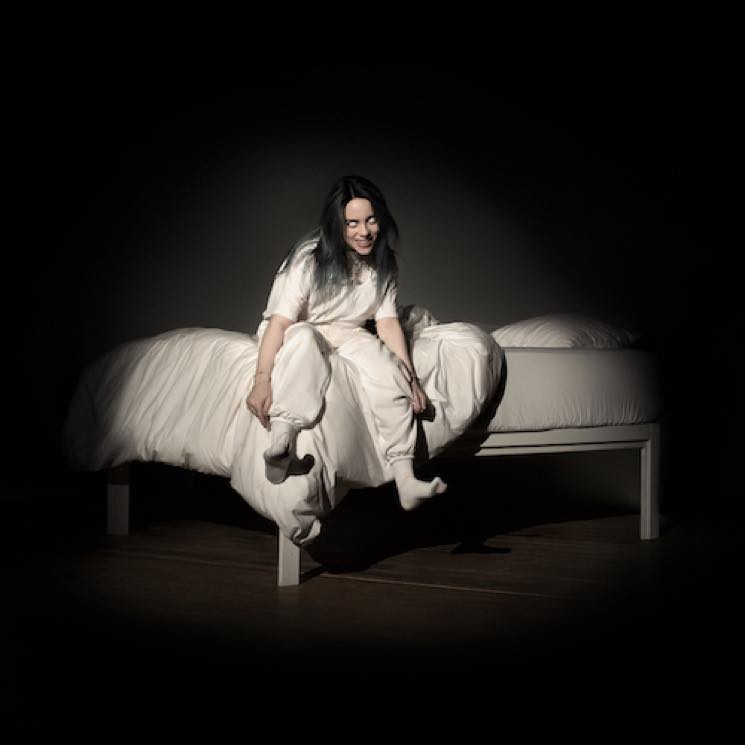
Billie Eilish doesn't care for labels. You could call her sound pop, R&B, electronic or some amalgam, but at the end of the day, When We All Fall Asleep, Where Do We Go? is what it is: a biting, urgent, nightmare-scape with a touch of weary lovesickness. In short, the record captures the sense of being a teenager, but with self-awareness that transcends juvenescence.
Expertly produced and rhythm-driven, this debut doesn't move like an introduction or a showcase of skills, instead keeping to an aesthetic theme. By the record's end, it's as though you've walked through a hall of mirrors only to be faced once more with reality. The relief to be out, however, doesn't stop you from wanting to go back in again.
Kaitlin Ruether
10. Flying Lotus
Flamagra
(Warp)
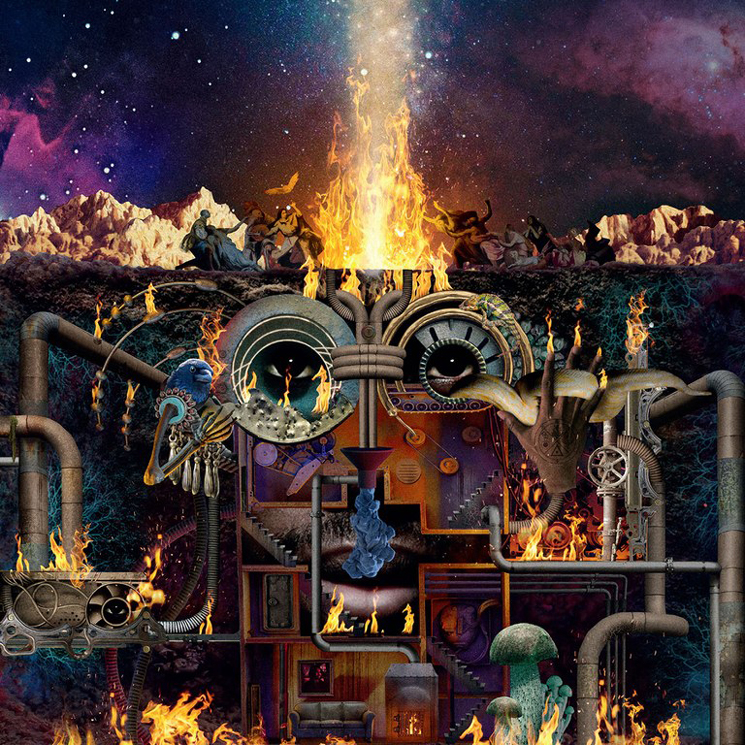
Consistent in both his genre fusion and world-building, Flying Lotus brought the heat once again with Flamagra, a set of songs conceived around the idea of an eternal flame.
The album demonstrates a more even stylistic approach than jazz-leaning predecessor You're Dead!. Exercises in jazz and funk like "Spontaneous," "Takashi" and "Andromeda" are set against beat-forward moments like "Post Requisite," "Capillaries" and "Pygmy," which serve as familiar warmth for fans of FlyLo's past loops. As he told us in a recent interview, it's also no coincidence that Flamagra ends the same way it begins.
Gathering around FlyLo's flame are a host of familiar faces and newcomers who faithfully fuel his vision. Across the listen, collaborations with Thundercat and string wizard Miguel Atwood-Ferguson prove indispensible. Tierra Whack revels in the ramshackle beat of "Yellow Belly," while Denzel Curry's heated delivery on "Black Balloons Reprise" powers the album to its fiery apex.
Calum Slingerland
9. Better Oblivion Community Centre
Better Oblivion Community Centre
(Dead Oceans)
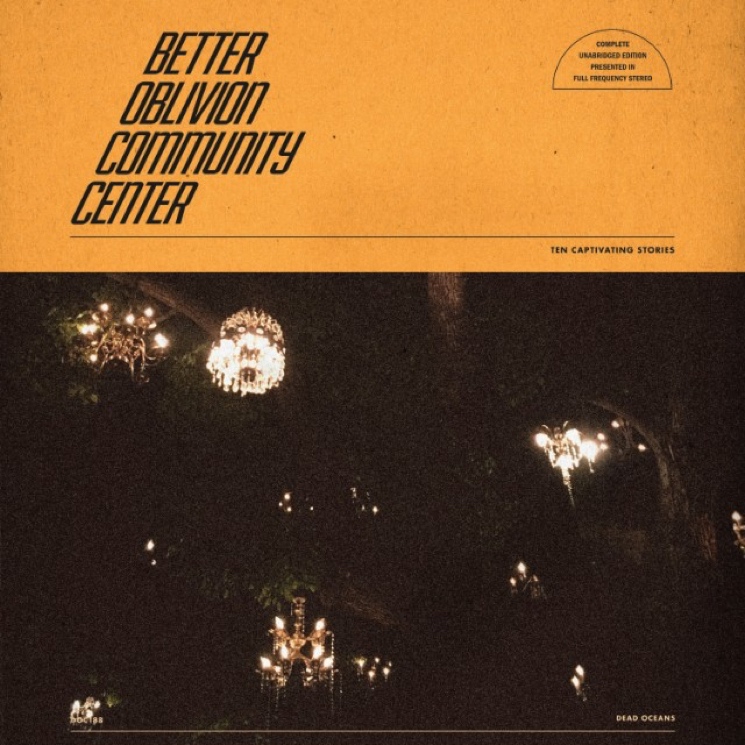
Better Oblivion Community Center, the eponymous debut album from Bright Eyes leader Conor Oberst and singer-songwriter Phoebe Bridgers' new band, is a meeting place for the disillusioned; crafted against a backdrop of injustices and heartbreak, these folk-rock songs are lined with broken bodies.
In a particularly bleak moment within the final quiet moments of opener "Didn't Know What I Was in For," Bridgers and Oberst liken being alive to a contractual obligation: "Living's just a promise that I made," they sing.
These two artists make soundtracks for those whose hearts are perpetually heavy, and so while Better Oblivion Community Center is a double-scoop of melancholia, there is an encouraging camaraderie present. Whether singing together or individually, among the soft light of hushed acoustic soundscapes or fuzzy anthemic rock tracks, Oberst and Bridgers offer assurance that you're not alone.
Laura Stanley
8. Full of Hell
Weeping Choir
(Relapse)
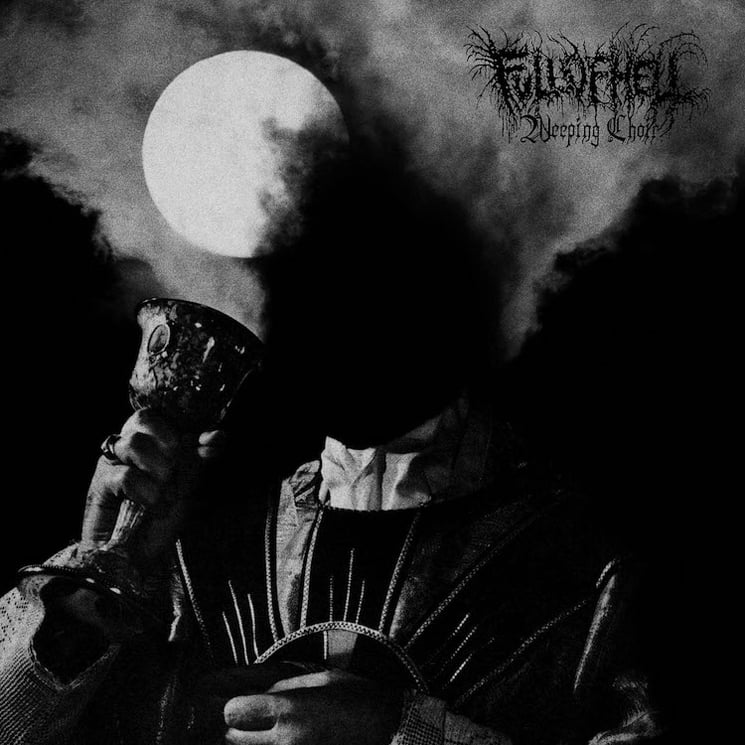
Full of Hell are a Renaissance band. From their earlier hardcore albums, to their experimental collaborations with artists like Merzbow, to the focused attack of death metal and grindcore on 2017's acclaimed Trumpeting Ecstasy, Full of Hell have displayed an affinity and talent for crafting a diverse range of extreme music.
With Weeping Choir, the band have written their most comprehensive album yet, reflecting back on all the sounds they have worked with in the past. The same lacerating death/grind of its companion album Ecstasy is here, but unlike its kin, Weeping Choir revels in Full of Hell's complete repertoire, interjecting grind with bludgeoning hardcore riffage and maddening noise.
Weeping Choir is the total realization of Full of Hell's sound, a creative output that is deeply personal and unique. It's an important album not only for the band, but for metal itself, evidence that there are still fringes left unexplored and sounds undiscovered.
Jack Kelleher
7. The National
I Am Easy to Find
(4AD)
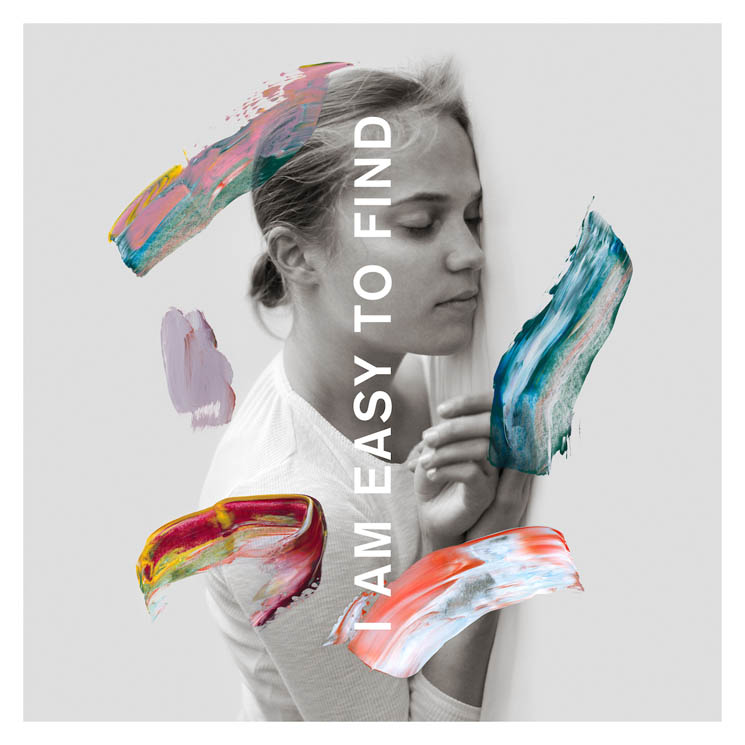
Everything the National were doing prior to 2019 was working great; consistently churning out an enjoyable record once every couple of years, replete with well crafted, sufficiently woebegone folk-rock songs seemed like a perfect formula. But then, from out of nowhere, I Am Easy to Find dropped like a bomb.
The album was released alongside a short film directed by acclaimed filmmaker Mike Mills, who was also an active collaborator on the musical component of the project. The band were also joined by a star-studded list of collaborators during the recording process.
At 64 minutes in length, the album feels epic in scope. The stories told here span decades; songs reference everyone from R.E.M. to Patti Smith and are just as diverse, musically. The album's sheer length, and its attempts to grapple with so much at once, only make it feel more fleshed out and human; it's moving in its imperfections, ultimately triumphant.
Sophie Brzozowski
6. Weyes Blood
Titanic Rising
(Sub Pop)
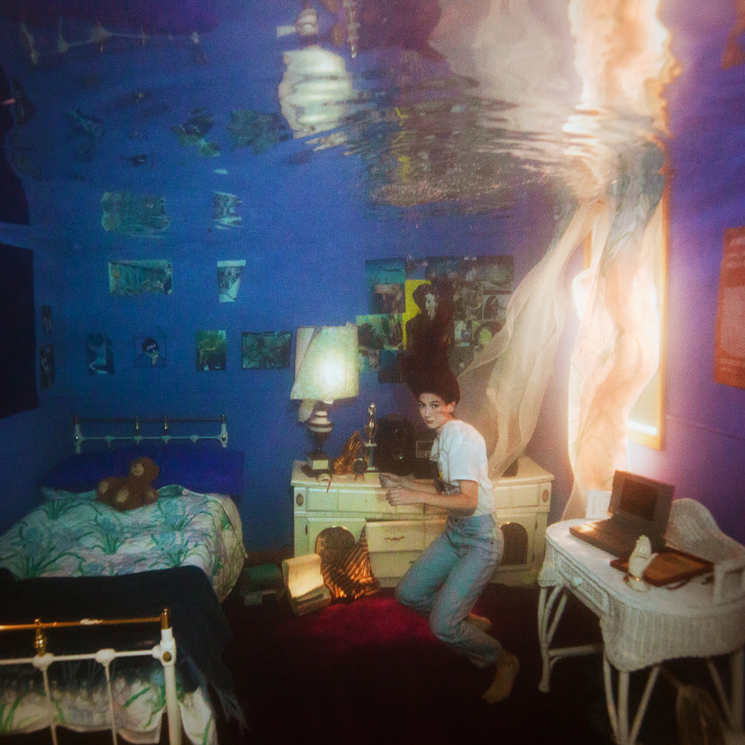
After perfecting her classic, country-flecked balladry on her third album, Front Row Seat to Earth, Weyes Blood mastermind Natalie Mering aimed for something bigger on her next LP, this year's Titanic Rising. Perhaps best categorized as 'cosmic folk,' the album finds Mering building on her rich songcraft by adding layers of instrumental and production flourishes: the dense beds of strings on the climax of opener "A Lot's Gonna Change," for example; thick slide guitar licks on "Andromeda"; and the soft synth arpeggiations of album centrepiece "Movies" which, in an astonishing tonal shift, takes a hairpin turn just past the halfway mark into an urgent, horsehair-shredding strings section.
Mering's songs blend the best of musicians like Carole King, Joni Mitchell and Patsy Cline, but the themes are updated for the malaise of the modern day. Throughout Titanic Rising, she tackles heady topics like loss of love and faith and the interminable turmoil that defines day-to-day life, but Mering never forgets the strength of the individual. Sure, "a lot's gonna change," as she sings in the opening title's refrain, but she immediately adds some reassurance: "You got what it takes."
Stephen Carlick
5. Solange
When I Get Home
(Columbia)
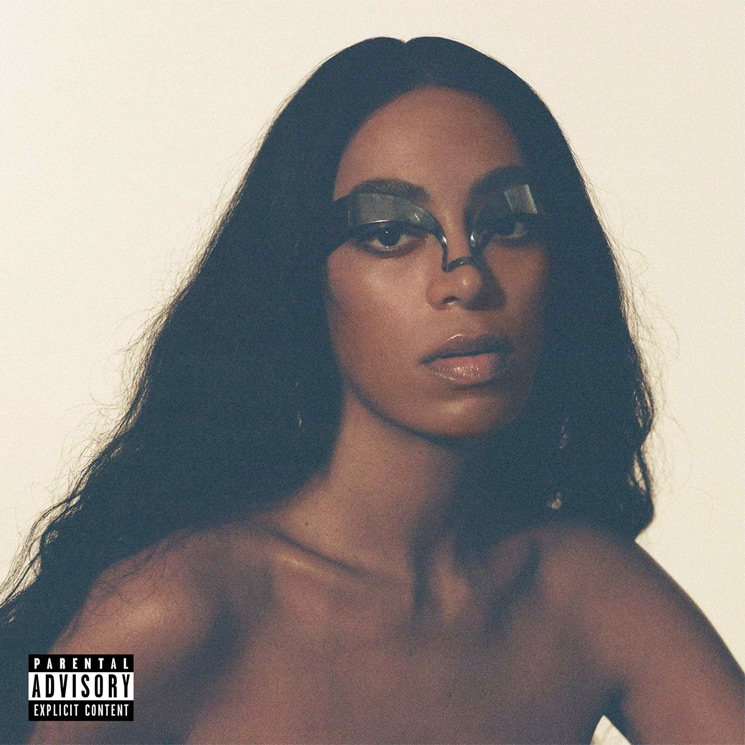
Flattening past, present, future and speculative fiction like a mood board sparkling with candy paint and synthesizer interfaces, on When I Get Home, Solange reframes her Houston, Texas hometown as utopian black dreamscape. A myth-building project that's more fluid and freeform than 2016's A Seat at the Table, it's a study of place in constant flux, tracks sliding into each other in a haze while Solange narrates using artful repetitions. Spare and accentual guest appearances from Gucci Mane, Playboi Carti and Tyler, the Creator emerge as if part of the landscape, while nearly half as many interludes as there are proper tracks stitch it together, like asides pulling up Instagram stories of Houston residents.
Like ambient music, this dream-inducing quality can necessitate multiple listens, but these also reward with new experiences, simultaneously providing a bigger, all-encompassing one that feels quintessentially here and now.
Tom Beedham
4. Carly Rae Jepsen
Dedicated
(604 Records/Universal)
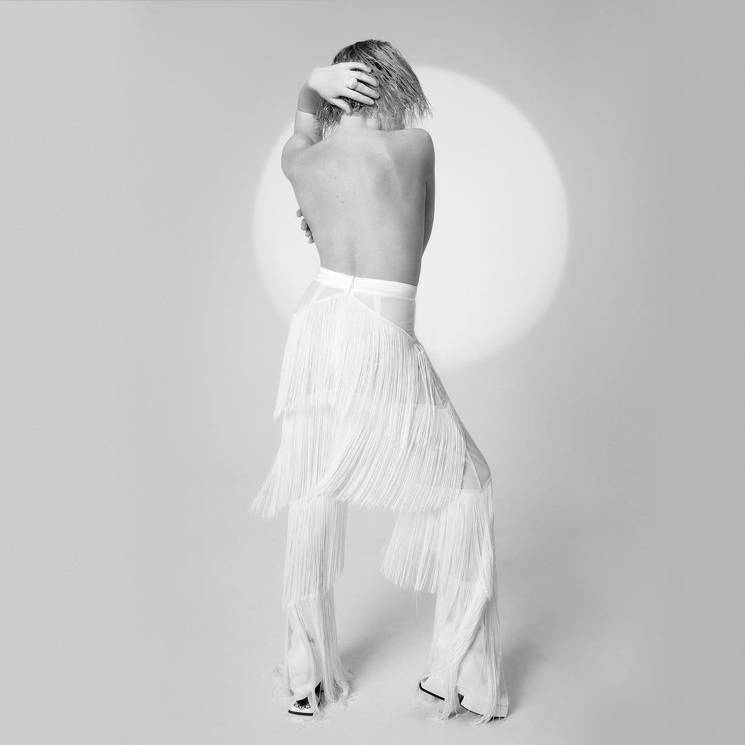
Where E•MO•TION proved Carly Rae Jepsen was more than just the "Call Me Maybe" singer, Dedicated solidifies her success as more than luck. It's a little more subdued than her last album, but the raw emotions in Jepsen's lyricism and consistently catchy '80s pop sounds make this record instantly familiar and inviting.
Dedicated fearlessly tackles the ups and downs of love through Jepsen's lens, with undeniably relatable results. Whether she's embracing overbearing tendencies ("Too Much"), burying a romantic spark for fear of being hurt ("Happy Not Knowing") or experiencing the ever-elusive feelings left from the one that got away ("Julien"), Jepsen's unbridled openness provides catharsis for the heart. Along with the theatrical lyricism, the album's soft disco beats, dreamy synths and never-ending stream of hooks make for another album of non-stop bops.
Joe Smith-Engelhardt
3. PUP
Morbid Stuff
(Little Dipper/Universal)
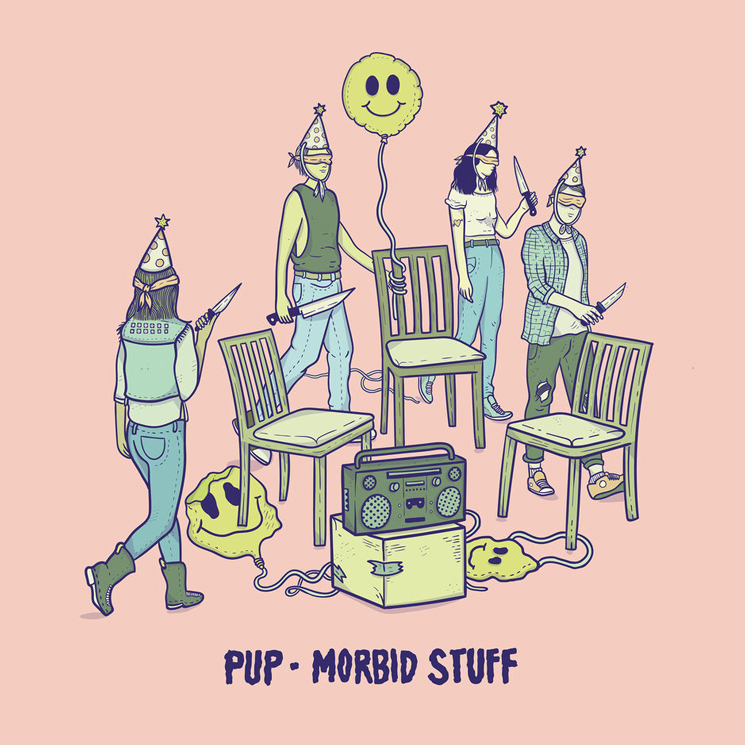
It's got to be hard enough to best the fabled sophomore slump, but managing to pull a three-for-three after releasing two beloved outings must be even tougher. Despite the uphill battle, PUP's third album is almost certainly their best, assaulting your senses with the band's lowest emotional lows and highest musical highs to date.
From the rambling spoken word intro of "Kids" to the literal meltdown that plays out over "Full Blown Meltdown," vocalist Stefan Babcock uses the 36-minute runtime of Morbid Stuff as nihilist exposure therapy; the record nose-dives into oblivion only to come out the other side less afraid of the calamity and more aware of the small, personal lights in an otherwise garbage existence.
It almost feels unfair to ask Babcock to keep diving deeper into the pool of self-doubt he's splashed around in since 2013. But as long as he's choosing to do this, every time PUP pop back out for a breath of air is a cause to gather 'round.
Corey Van den Hoogenband
2. Tyler, the Creator
IGOR
(Columbia)
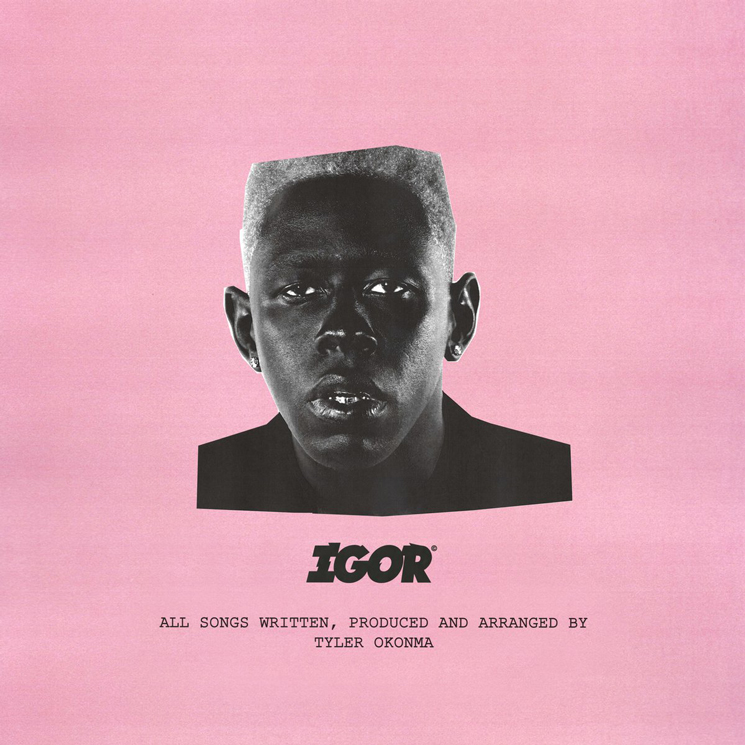
Heartbreak is a harrowing experience filled with hurt, rage, longing and spurts of dark humour — all of which Tyler, the Creator captures perfectly on IGOR. But the album is more than a heartbreak opus; its true message is that feeling your feelings is a very human experience, and it ought to be celebrated.
Tyler communicates this in deceptively clever ways. On IGOR, he's a frenetic and desperate protagonist, but he tempers the melancholy with bold, iridescent production — there's brightness behind the despair. And, though the album is rife with high-profile features (Kanye West, Pharrell and Solange, to name a few), Tyler tucks them between IGOR's layers so that no one voice is ever quite discernible. We're all the same. Emotions are what equalize us.
Innovative and honest, IGOR implores us to remember beauty, even in life's crappiest moments. Vulnerability, after all, can be a superpower.
A. Harmony
1. Sharon Van Etten
Remind Me Tomorrow
(Jagjaguwar)
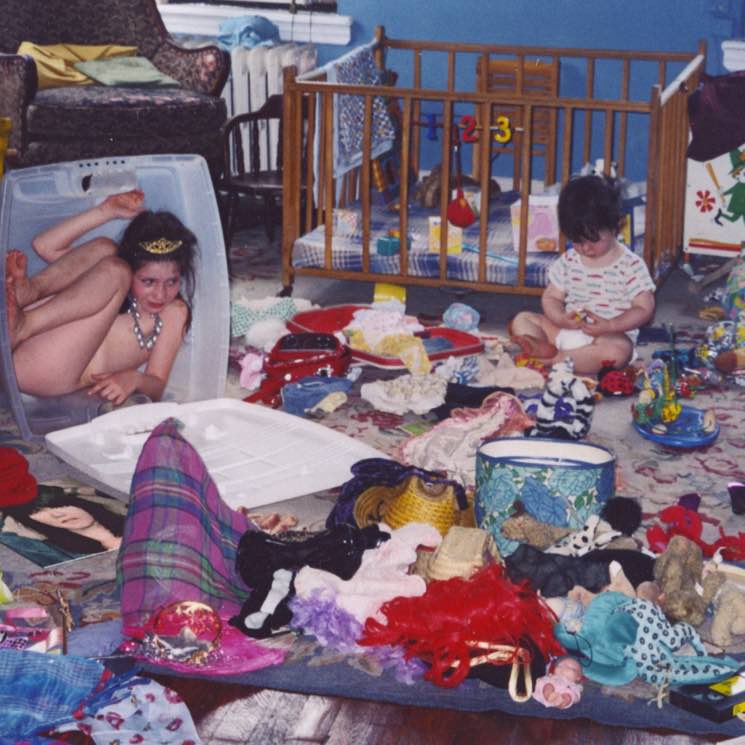
Sharon Van Etten has always done heartbreak and devastation well, and her first decade of popularity established her as a singer-songwriter unafraid to delve headfirst into the darker side of human emotion. But then, curiously, things started to pick up. In the five years since her last album, Are We There, Van Etten went back to school, had her first child and broke into acting. She considered abandoning music entirely.
In a chaotic world, Van Etten's emotional poise led her to make sense of it all on Remind Me Tomorrow. Extinguishing the last embers of her folk influence in favour of traces of synth-driven heartland rock, Remind Me Tomorrow expands her sound to bring some jubilant highs to the heartrending lows she's long since mastered. "I Told You Everything" and "Jupiter 4" are Van Etten fare at its most refined, while stadium-sized rockers "Comeback Kid" and "Seventeen" showcase her arrival into impending rock stardom, delicately balancing newfound euphoria with her well-worn sense of foreboding.
Remind Me Tomorrow is anthemic but not saccharine, melancholic but not austere. Van Etten embraced the chaos to create a bold and unsparing work that captures a vast emotional range — you can't help but feel it all.
Matt Bobkin
Maybe that's further evidence of the monoculture's breakup, or maybe the 2019 album that unites everyone across genres hasn't come out yet. In the meantime, there's plenty of debate to be had about these 29 long-playing feats of style and musicianship. Dig into Exclaim!'s Top 29 Albums of 2019 So Far below, and get arguing.
29. Deerhunter
Why Hasn't Everything Already Disappeared?
(4AD)

From their amorphous dream-psych beginnings to the more whimsical, sharply contemplative vision of their eighth album, Why Hasn't Everything Already Disappeared?, Deerhunter have existed in a hazy divide between alluring guitar rock and spacious, hypnotic experimentations. Here, the Atlanta band continue to follow their sonic impulses by blending some of their strongest pop hooks yet with the full spectrum of their bizarre, colourful pastiche.
The waltzing, harpsichord-led "Death in Midsummer" darts between exquisite and obscene, while the shimmering "What Happens to People?" is densely packed with bandleader Bradford Cox's pastoral musings and a deceptively cheery piano riff, lurching between glistening guitars and an ornate drum beat. The contrast between the fragrant reverie of the airy vocal exchange between guitarist Lockett Pundt and co-producer Cate Le Bon on "Tarnung," and the bubbly funk on "Plains" that follows, prove that Deerhunter aren't afraid of magnifying the peculiarities of their ever-expanding sound.
Chris Gee
28. Aldous Harding
Designer
(4AD)

Designer was everything listeners anticipated from Aldous Harding's third full-length, and a lot that wasn't — and that's what makes it so special. Harding has a way of making the uncanny tangible, and Designer delivers once more, providing the feeling of stumbling onto a lone stranger dancing naked in the middle of the woods, and knowing exactly how to join in without missing a beat. For those awaiting this latest release with bated breath, it was this familiarity, presented via oddity, that came to satisfy us once again, filling something we didn't know was empty with a multitude of rich, unusual classics.
Ariel Matheson
27. 2 Chainz
Rap or Go to the League
(Def Jam)

Five albums into a hard-earned but now glittering career, it was beginning to feel ambitious to ask for anything beyond pretty girls and trap music from 2 Chainz, which is why Rap or Go to the League — a reference to both a personal career crossroads and the limited escape routes of so many young black men from fractured homes — is so refreshing in its honesty and its excellent, soul-infused beats.
"I did some things I ain't proud of, like sold my mom drugs / The devil put somethin' toxic in me / Demons tryin' to have an auction in me," Chainz confesses on highlight "Threat 2 Society." So what if LeBron James couldn't lead his team to the NBA Finals this year? He was busy executive-producing one of the year's best no-nonsense hip-hop LPs.
Luke Fox
26. Jayda G
Significant Changes
(Ninja Tune)

There aren't many out there who can mix old-school disco cuts with environmentalism, but Vancouverite Jayda G appears to be one of them. After completing her master's degree in Resource and Environmental Management, she named her debut album Significant Changes, after the most commonly used phrase in her thesis.
She could have left the nod to academia at that, but the record is rife with references to her studies. "Missy Knows What's Up" quotes dialogue from biologist Misty MacDuffee, while "Orca's Reprise" samples whale calls atop a tender arrangement of strings. All the while, fresh approaches to disco are bookended by offbeat club tracks and downtempo excursions. It's a surprising album from a producer whose consistency now comes as no surprise whatsoever.
Daryl Keating
25. Nilüfer Yanya
Miss Universe
(ATO Records)

Fuelled by extraordinary hype and a handful of expertly crafted EPs, Nilüfer Yanya's steady trajectory seemingly needed just one more thing: a definitive full-length album.
Yanya's debut, Miss Universe, is equal parts brilliant and spontaneous, veering from soul-tinged R&B to Doolittle-era Pixies-isms like it's inherent. Lyrically, Yanya constructs a similar balancing act, obscuring the lines between desperation and violence: "Yeah, all I really want is / Somebody to stop me / Somebody to hold me back / It gets worse if it's not you / I'll be lyin' in a pool of someone else's blood," she sings on "Tears."
Tempered by Yanya's remarkable voice, the laser-sharp clarity that permeates Miss Universe is as incisive as it is inviting. Though she was already operating at a level far beyond her peers, Miss Universe provides a dose of validation.
Calvin Cashen
24. Whitechapel
The Valley
(Metal Blade)

There's been a bit of a deathcore revival lately, but rather than doubling down on blast beats and breakdowns for that retro appeal, Knoxville, Tennessee's Whitechapel transcended it on this year's The Valley.
There are still those key building blocks, but it's the mortar that holds them together that really shapes the album. Vocalist Phil Bozeman croons like Corey Taylor or Maynard James Keenan, while his bandmates complement his always-impressive vocals with mood-appropriate musical musings. A tender tune like "Hickory Creek" makes the raw rage of "Forgiveness Is Weakness" terrifying. The palpable emotions, which confront childhood trauma and abuse, only make it more so.
"When a Demon Defiles a Witch" splits the difference between fury and feeling, resulting in the best chorus — in the traditional sense — deathcore has ever produced.
Funnily enough, despite renewed interest in the once-maligned subgenre, the best thing to come from deathcore in 2019 is the one album that risked stepping away from it.
Bradley Zorgdrager
23. The Chemical Brothers
No Geography
(Astralwerks)

Part of the promised wave of European acts that were going to take over North America in the mid-'90s, the Chemical Brothers have always embodied the blissed-out harmony of the UK's summer of love and the acid-drenched breakbeats that fuelled the early DIY rave culture in the UK. This is not a Hollywood style do-over where the band just recreate nostalgic moments and end up as a hollow version of themselves.
That doesn't mean Ed Simons and long-time partner Tom Rowlands don't use some of the foundations of early Chicago house, dialled up Detroit techno, wide-eyed acid and neon-splashed breakbeats on their ninth studio album, and first release in four years. In a genre that can change faster than the digital store algorithms can keep up, the Chemical Brothers' use No Geography to remind people how their strobe-blasting, body-rocking, sensory-overloaded live shows in the new millennium paved the way for what you see at every big stage electronic festival in 2019.
Anthony Augustine
22. Bring Me the Horizon
amo
(Sony)

BMTH continued their unstoppable rise with amo, the most mainstream and experimental album they've produced yet. Gone are the days of the deathcore scene kids; in their place, we have some of the best pop metal tracks ever put to record, including "Mantra," "Medicine," "Mother Tongue" and "Sugar Honey Ice & Tea." Embracing a sugary, electronic-infused sound 15 years into your career would be cyanide for most metalcore acts, but BMTH have never really cared what people think of them. Or, as the meta-lyrics to the song "Heavy Metal" state: "This shit ain't heavy metal, and that's alright."
Max Morin
21. Charly Bliss
Young Enough
(Barsuk)

Like any great power pop group, Charly Bliss have mastered the art of propulsive, infectious melodies. And like any great pop record, Young Enough is energetic and fun, with no excess fat, perfectly optimized to deliver all the highs of contemporary indie pop.
But this record has more tricks up its sleeve. The title track and "Hurt Me" feature evocative vocal performances from Eva Hendricks, and heart-wrenching lyricism, but most notable is the bright and danceable "Chatroom." Written after Hendricks was sexually assaulted by someone she dated, she's talked about how the song is a celebration of shaking off past trauma and feeling strong again.
It's moments like these that speak to the sheer growth the band have undergone, and how they can turn moments of pop exuberance into ones that carry significant heft — ones you'll want to return to again and again.
Matt Yuyitung
20. James Blake
Assume Form
(Polydor)

There's a quiet assuredness underlying much of James Blake's work, one that has formed the narrative core to his first three albums. But start paying closer attention to Blake's outlying outputs, such as his production credits and 1-800 Dinosaur releases, and it becomes quickly apparent that those who've attempted to pigeonhole his style have been woefully misguided.
Assume Form is a perfect storm of all of Blake's influences and idiosyncrasies. While much has been said about the positive tone the album strikes, especially in contrast with 2016's The Colour in Anything, Assume Form's greatest strength is its ability to weave together all of the disparate Blakes within a very distinct — and yes, often uplifting — palette, all while allowing his impressive roster of guest vocalists the chance to shine.
Scott Simpson
19. Vampire Weekend
Father of the Bride
(Columbia)

In Ezra Koenig's world, lowbrow and highbrow don't exist. He's dabbled in everything from pop production (on Beyoncé's Lemonade) to anime (his Netflix series Neo Yokio) — and he's also got a weird fixation with the font Jokerman. He approaches everything with a scholar's attention to detail, channelling his passions with a mixture of irony and sincere appreciation.
This all comes through on Father of the Bride, a clipart-bedazzled 18-song opus that opens a new chapter for the project. With core member Rostam Batmanglij out of the band, Koenig explores wacky jazz scatting ("Sunflower"), white-knuckle flamenco ("Sympathy") and cheeseball country (on three duets with Danielle Haim). Throw in the heart-wrenching pop melodies of "Harmony Hall" and "Stranger," and Father of the Bride works like a mood board for Koenig's wildest tastes.
Alex Hudson
18. Little Simz
GREY Area
(Age 101)

North Londoner Little Simz elevated her music this March upon the release of GREY Area, the MC's third full-length album. Working closely with producer Inflo, Simz delivered a starkly honest portrait of navigating her early twenties, rapping vulnerably about her relationships, mental health and career.
The record's deep sense of groove can be heard in the R&B-infused "Selfish," featuring fellow Londoner Cleo Sol; elsewhere, Simz juxtaposes her bars with the voices of Erik Bodin and Yukimi Nagano (Little Dragon), as well as Michael Kiwanuka. The soundscapes on GREY Area are understated when needed, yet they heighten the drama and prowess of Simz' lines, as heard on "Venom," a bass- and strings-inflected assertion of feminine rage.
In detaching herself from the fantastical themes of 2016's Stillness in Wonderland, Little Simz's songs connect in a more direct manner here, deftly conveying her fears and continuing to establish her triumphs as the singular artist she is.
Anna Alger
17. Fontaines D.C.
Dogrel
(Partisan Records)

Joining their brethren in IDLES and Shame, Fontaines D.C. have solidified their place at the forefront of the exceptional recent wave of post-punk exports. This April saw the Irish lads release their debut full-length; a poetic testament to the disenchantment that pervades the demise of youth, Dogrel deftly integrates both early garage/surf rock influences.
Over the record's 11 tracks, which veer between boisterous and frantic to melancholic and fragile, singer Grian Chatten's poignant storytelling never falters: "Dublin in the rain is mine / A pregnant city with a Catholic mind," he barks assertively on "Big," Dogrel's fiercely catchy opener. Elsewhere, on the ballad "Roy's Tune," the frontman gently croons: "Hey love, are you hanging on?" Naturally saturating each lyric in his thick Irish accent, the powerful juxtaposition of Chatten's vocal tones feed Dogrel's narrative.
With authentic talent and a supportive community of similarly bold bands, Fontaines D.C. are sure to be dubbed one of 2019's most important new acts.
Ava Muir
16. Jenny Lewis
On the Line
(Warner)

On the Line, Jenny Lewis's fourth solo album, finds the ex-Rilo Kiley frontwoman squaring up with the past. Its 11 songs unpack complicated moments and tangled emotions with vibrant shades of pop-rock and just enough California twang.
Across them, Lewis has never seemed so in command of her craft: from the sharpened guitar-led urgency of "Red Bull & Hennessey" to the potent, anti-depressant drift of "Do Si Do," she lands poignant realizations by digging into little details of the memories she's revisiting. And backed by a team of legendary studio musicians, the music keeps pace with her lyrical feats, letting On the Line reveal itself as an essential part of Lewis' catalogue.
Paul Blinov
15. Jamila Woods
LEGACY! LEGACY!
(Jagjaguwar)

Jamila Woods' music has a message on her new LP, LEGACY! LEGACY!, on which she seamlessly fuses irresistible grooves with vivid lyrics about the African American greats who have preceded her and paved a more progressive way.
Opener "Betty" for instance, is the kind of track that would have made its muse, pioneering singer Betty Davis, grin, with thrillingly unpredictable percussive shuffle and Woods' assured singing. Woods achieves equal feats on "Zora" while singing about dining on African American staples like collard greens with a silver spoon, vividly conveying longing with drawn out syllables. "Giovanni," meanwhile, boasts dramatic dips in tempo juxtaposed with stratospheric synth riffs and equally heavenly singing from Woods.
Both as a tribute to her forbearers that sparked so much promise, and as an early testament to her own towering potential, Woods makes LEGACY! LEGACY! live up to its name.
Kyle Mullin
14. Big Thief
U.F.O.F.
(4AD)

All folk acts look to the past in some ways, but there's something about Brooklyn-based folk-rock combo Big Thief's latest album, U.F.O.F., that feels of the present — and totally eternal.
Adrianne Lenker's finger-picked guitar playing crackles with light, its interlocking broken chords perfectly complementing her repeated phrases about people, creatures and the unseen laws of the universe; the rhythm section of bassist Max Oleartchik and drummer James Krivchenia is subdued yet strong, lending a gentle push and pull that guides these songs with grace (and feels so innate it belies their Berklee training); and Buck Meek's live-wire guitar playing punctuates the album's more profound moments, awakening the listener during the hypnotic dirge of opener "Contact," and finding space alongside the interloping sonic artefacts that dot the rest of the album and seem to transcend both time and space.
A deep, dark and melancholy album emerging in a time of general uncertainty, Big Thief's U.F.O.F. feels like a cool embrace — a welcome presence (and present) from one of the best bands of our moment.
Matthew Ritchie
13. Snotty Nose Rez Kids
Trapline
(Fontana)

Few acts have more to say than Kitimat, BC's Snotty Nose Rez Kids. The duo of Darren "Young D" Metz and Quinton "Yung Trybez" Nyce broke out with their Polaris Music Prize-shortlisted sophomore album, The Average Savage, and Trapline follows with even more crucial challenges to power.
In a key track, "Son of a Matriarch" calls out the patriarchy that has dominated Western political structures and cultural institutions since their foundation. Even the title itself, Trapline, is a reference to social responsibility, to our reliance on the land and how it, the sea and the air must be honoured if future generations are to flourish. The trap-tinged beats are as hard-hitting and slickly-produced as anyone around, but their commitment to elevating marginalized people carries more weight than mansion-dwellers could ever realize. The skits here solidify their messages, rather than distract from them, making Trapline a complete and powerful artistic statement.
Alan Ranta
12. Lizzo
Cuz I Love You
(Warner Music Canada/Atlantic)

It takes your breath away, Lizzo's voice, on the first and title track of her major label debut, Cuz I Love You. She wails that song's opening line with no backing, and it's both a powerful and apt way to start the album, her voice bare, just her. It's how she appears on the record's cover and also the spirit in which she delivers its 11 tracks.
From sonic references like jazz, soul, funk, and trap to material that tackles sexuality ("Lingerie"), body positivity ("Tempo," on which she pairs perfectly with Missy Elliott), race ("Better in Color") and relationships ("Jerome"), Cuz I Love You is a triumphant declaration of self-love in every way.
Yasmine Shemesh
11. Billie Eilish
When We All Fall Asleep, Where Do We Go?
(Darkroom/Interscope)

Billie Eilish doesn't care for labels. You could call her sound pop, R&B, electronic or some amalgam, but at the end of the day, When We All Fall Asleep, Where Do We Go? is what it is: a biting, urgent, nightmare-scape with a touch of weary lovesickness. In short, the record captures the sense of being a teenager, but with self-awareness that transcends juvenescence.
Expertly produced and rhythm-driven, this debut doesn't move like an introduction or a showcase of skills, instead keeping to an aesthetic theme. By the record's end, it's as though you've walked through a hall of mirrors only to be faced once more with reality. The relief to be out, however, doesn't stop you from wanting to go back in again.
Kaitlin Ruether
10. Flying Lotus
Flamagra
(Warp)

Consistent in both his genre fusion and world-building, Flying Lotus brought the heat once again with Flamagra, a set of songs conceived around the idea of an eternal flame.
The album demonstrates a more even stylistic approach than jazz-leaning predecessor You're Dead!. Exercises in jazz and funk like "Spontaneous," "Takashi" and "Andromeda" are set against beat-forward moments like "Post Requisite," "Capillaries" and "Pygmy," which serve as familiar warmth for fans of FlyLo's past loops. As he told us in a recent interview, it's also no coincidence that Flamagra ends the same way it begins.
Gathering around FlyLo's flame are a host of familiar faces and newcomers who faithfully fuel his vision. Across the listen, collaborations with Thundercat and string wizard Miguel Atwood-Ferguson prove indispensible. Tierra Whack revels in the ramshackle beat of "Yellow Belly," while Denzel Curry's heated delivery on "Black Balloons Reprise" powers the album to its fiery apex.
Calum Slingerland
9. Better Oblivion Community Centre
Better Oblivion Community Centre
(Dead Oceans)

Better Oblivion Community Center, the eponymous debut album from Bright Eyes leader Conor Oberst and singer-songwriter Phoebe Bridgers' new band, is a meeting place for the disillusioned; crafted against a backdrop of injustices and heartbreak, these folk-rock songs are lined with broken bodies.
In a particularly bleak moment within the final quiet moments of opener "Didn't Know What I Was in For," Bridgers and Oberst liken being alive to a contractual obligation: "Living's just a promise that I made," they sing.
These two artists make soundtracks for those whose hearts are perpetually heavy, and so while Better Oblivion Community Center is a double-scoop of melancholia, there is an encouraging camaraderie present. Whether singing together or individually, among the soft light of hushed acoustic soundscapes or fuzzy anthemic rock tracks, Oberst and Bridgers offer assurance that you're not alone.
Laura Stanley
8. Full of Hell
Weeping Choir
(Relapse)

Full of Hell are a Renaissance band. From their earlier hardcore albums, to their experimental collaborations with artists like Merzbow, to the focused attack of death metal and grindcore on 2017's acclaimed Trumpeting Ecstasy, Full of Hell have displayed an affinity and talent for crafting a diverse range of extreme music.
With Weeping Choir, the band have written their most comprehensive album yet, reflecting back on all the sounds they have worked with in the past. The same lacerating death/grind of its companion album Ecstasy is here, but unlike its kin, Weeping Choir revels in Full of Hell's complete repertoire, interjecting grind with bludgeoning hardcore riffage and maddening noise.
Weeping Choir is the total realization of Full of Hell's sound, a creative output that is deeply personal and unique. It's an important album not only for the band, but for metal itself, evidence that there are still fringes left unexplored and sounds undiscovered.
Jack Kelleher
7. The National
I Am Easy to Find
(4AD)

Everything the National were doing prior to 2019 was working great; consistently churning out an enjoyable record once every couple of years, replete with well crafted, sufficiently woebegone folk-rock songs seemed like a perfect formula. But then, from out of nowhere, I Am Easy to Find dropped like a bomb.
The album was released alongside a short film directed by acclaimed filmmaker Mike Mills, who was also an active collaborator on the musical component of the project. The band were also joined by a star-studded list of collaborators during the recording process.
At 64 minutes in length, the album feels epic in scope. The stories told here span decades; songs reference everyone from R.E.M. to Patti Smith and are just as diverse, musically. The album's sheer length, and its attempts to grapple with so much at once, only make it feel more fleshed out and human; it's moving in its imperfections, ultimately triumphant.
Sophie Brzozowski
6. Weyes Blood
Titanic Rising
(Sub Pop)

After perfecting her classic, country-flecked balladry on her third album, Front Row Seat to Earth, Weyes Blood mastermind Natalie Mering aimed for something bigger on her next LP, this year's Titanic Rising. Perhaps best categorized as 'cosmic folk,' the album finds Mering building on her rich songcraft by adding layers of instrumental and production flourishes: the dense beds of strings on the climax of opener "A Lot's Gonna Change," for example; thick slide guitar licks on "Andromeda"; and the soft synth arpeggiations of album centrepiece "Movies" which, in an astonishing tonal shift, takes a hairpin turn just past the halfway mark into an urgent, horsehair-shredding strings section.
Mering's songs blend the best of musicians like Carole King, Joni Mitchell and Patsy Cline, but the themes are updated for the malaise of the modern day. Throughout Titanic Rising, she tackles heady topics like loss of love and faith and the interminable turmoil that defines day-to-day life, but Mering never forgets the strength of the individual. Sure, "a lot's gonna change," as she sings in the opening title's refrain, but she immediately adds some reassurance: "You got what it takes."
Stephen Carlick
5. Solange
When I Get Home
(Columbia)

Flattening past, present, future and speculative fiction like a mood board sparkling with candy paint and synthesizer interfaces, on When I Get Home, Solange reframes her Houston, Texas hometown as utopian black dreamscape. A myth-building project that's more fluid and freeform than 2016's A Seat at the Table, it's a study of place in constant flux, tracks sliding into each other in a haze while Solange narrates using artful repetitions. Spare and accentual guest appearances from Gucci Mane, Playboi Carti and Tyler, the Creator emerge as if part of the landscape, while nearly half as many interludes as there are proper tracks stitch it together, like asides pulling up Instagram stories of Houston residents.
Like ambient music, this dream-inducing quality can necessitate multiple listens, but these also reward with new experiences, simultaneously providing a bigger, all-encompassing one that feels quintessentially here and now.
Tom Beedham
4. Carly Rae Jepsen
Dedicated
(604 Records/Universal)

Where E•MO•TION proved Carly Rae Jepsen was more than just the "Call Me Maybe" singer, Dedicated solidifies her success as more than luck. It's a little more subdued than her last album, but the raw emotions in Jepsen's lyricism and consistently catchy '80s pop sounds make this record instantly familiar and inviting.
Dedicated fearlessly tackles the ups and downs of love through Jepsen's lens, with undeniably relatable results. Whether she's embracing overbearing tendencies ("Too Much"), burying a romantic spark for fear of being hurt ("Happy Not Knowing") or experiencing the ever-elusive feelings left from the one that got away ("Julien"), Jepsen's unbridled openness provides catharsis for the heart. Along with the theatrical lyricism, the album's soft disco beats, dreamy synths and never-ending stream of hooks make for another album of non-stop bops.
Joe Smith-Engelhardt
3. PUP
Morbid Stuff
(Little Dipper/Universal)

It's got to be hard enough to best the fabled sophomore slump, but managing to pull a three-for-three after releasing two beloved outings must be even tougher. Despite the uphill battle, PUP's third album is almost certainly their best, assaulting your senses with the band's lowest emotional lows and highest musical highs to date.
From the rambling spoken word intro of "Kids" to the literal meltdown that plays out over "Full Blown Meltdown," vocalist Stefan Babcock uses the 36-minute runtime of Morbid Stuff as nihilist exposure therapy; the record nose-dives into oblivion only to come out the other side less afraid of the calamity and more aware of the small, personal lights in an otherwise garbage existence.
It almost feels unfair to ask Babcock to keep diving deeper into the pool of self-doubt he's splashed around in since 2013. But as long as he's choosing to do this, every time PUP pop back out for a breath of air is a cause to gather 'round.
Corey Van den Hoogenband
2. Tyler, the Creator
IGOR
(Columbia)

Heartbreak is a harrowing experience filled with hurt, rage, longing and spurts of dark humour — all of which Tyler, the Creator captures perfectly on IGOR. But the album is more than a heartbreak opus; its true message is that feeling your feelings is a very human experience, and it ought to be celebrated.
Tyler communicates this in deceptively clever ways. On IGOR, he's a frenetic and desperate protagonist, but he tempers the melancholy with bold, iridescent production — there's brightness behind the despair. And, though the album is rife with high-profile features (Kanye West, Pharrell and Solange, to name a few), Tyler tucks them between IGOR's layers so that no one voice is ever quite discernible. We're all the same. Emotions are what equalize us.
Innovative and honest, IGOR implores us to remember beauty, even in life's crappiest moments. Vulnerability, after all, can be a superpower.
A. Harmony
1. Sharon Van Etten
Remind Me Tomorrow
(Jagjaguwar)

Sharon Van Etten has always done heartbreak and devastation well, and her first decade of popularity established her as a singer-songwriter unafraid to delve headfirst into the darker side of human emotion. But then, curiously, things started to pick up. In the five years since her last album, Are We There, Van Etten went back to school, had her first child and broke into acting. She considered abandoning music entirely.
In a chaotic world, Van Etten's emotional poise led her to make sense of it all on Remind Me Tomorrow. Extinguishing the last embers of her folk influence in favour of traces of synth-driven heartland rock, Remind Me Tomorrow expands her sound to bring some jubilant highs to the heartrending lows she's long since mastered. "I Told You Everything" and "Jupiter 4" are Van Etten fare at its most refined, while stadium-sized rockers "Comeback Kid" and "Seventeen" showcase her arrival into impending rock stardom, delicately balancing newfound euphoria with her well-worn sense of foreboding.
Remind Me Tomorrow is anthemic but not saccharine, melancholic but not austere. Van Etten embraced the chaos to create a bold and unsparing work that captures a vast emotional range — you can't help but feel it all.
Matt Bobkin
